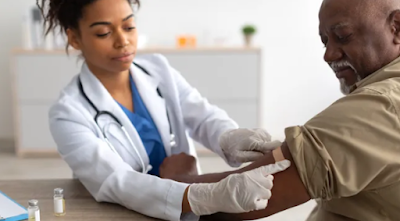The Centers for Disease Control and Prevention (CDC) has narrowed its recommendations for which older adults should get a vaccine against respiratory syncytial virus (RSV). It now states that only adults 75 and older, or those ages 60 to 74 who are at high risk, should get the shot.
That's partly because the vaccine may slightly increase the risk of a rare side effect that can sometimes lead to paralysis or death.
RSV circulates seasonally and hospitalizes 60,000 to 160,000 older adults in the U.S. each year. An estimated 6,000 to 10,000 people in this age group die due to RSV infection annually. The first-ever RSV vaccine was approved last year, and a total of three have now been approved for use in people ages 60 and up: GSK's Arexvy, Pfizer's Abrysvo and, most recently, Moderna's mResvia.
Initially, the CDC said all adults ages 60 and older could get one dose of one of these RSV vaccines after discussing it with their doctor.
Related: FDA approves 1st RSV vaccine for use in pregnancy to stop infection in newborns
Now, "based on currently available evidence," the CDC's Advisory Committee on Immunization Practices has concluded that the benefits of RSV vaccination do not clearly outweigh the potential harms in adults ages 60 to 74 who don't have risk factors for severe RSV. However, people in this age range who do have risk factors could still benefit.

